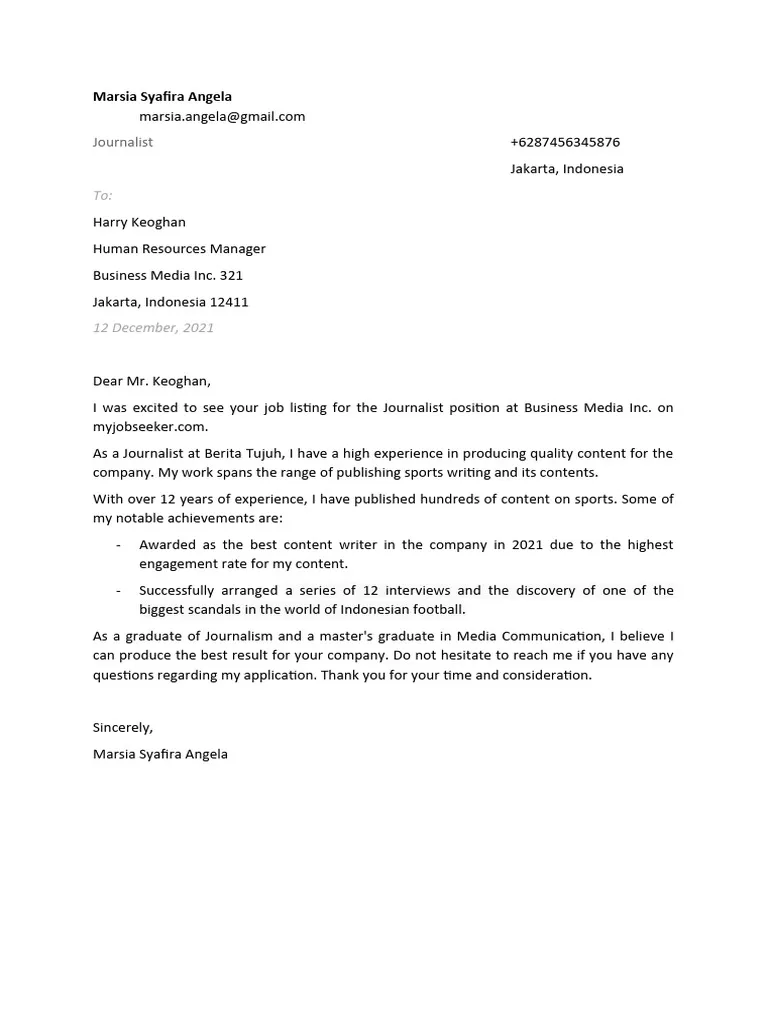Crafting the Perfect Cover Letter for Reporters
Landing a job as a reporter requires more than just a stellar resume; a compelling cover letter can be the key that unlocks the door to your dream career. In the competitive world of journalism, your cover letter is your first opportunity to make a lasting impression on potential employers. It’s your chance to demonstrate not only your writing skills but also your passion for the profession and your understanding of the news landscape. This guide provides seven essential tips to help you craft a cover letter that stands out, showcases your abilities, and significantly boosts your chances of success.
Understanding the Importance of a Cover Letter
A well-written cover letter is more than just a formality; it’s a vital tool in your job application toolkit. It serves as a personalized introduction, allowing you to connect with the hiring manager on a deeper level than a resume alone can achieve. It provides context to your experience, explains your career aspirations, and highlights why you are the ideal candidate for the role. A cover letter also demonstrates your communication skills, attention to detail, and professionalism, all of which are critical attributes for a reporter.
Why a Cover Letter is Crucial for Reporters
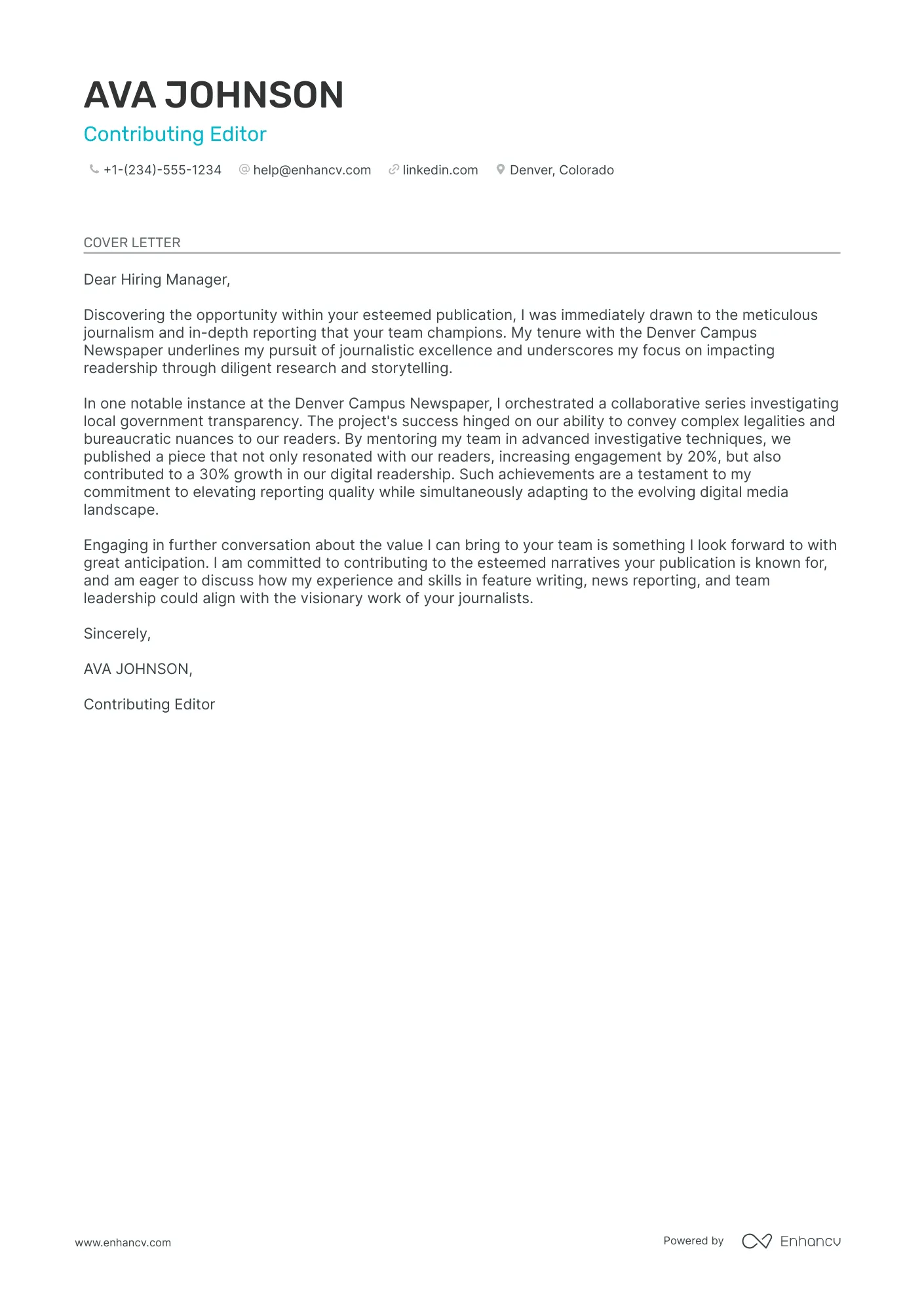
For reporters, a cover letter is especially critical. It provides an opportunity to showcase your writing style, demonstrate your news judgment, and reveal your unique perspective. It allows you to go beyond the basic facts of your resume and present a narrative that reflects your journalistic skills and personality. Moreover, it shows that you have taken the time and effort to tailor your application to the specific needs of the publication or news organization, indicating a genuine interest in the position.
Tip 1 Tailoring Your Cover Letter to the Role
Generic cover letters are easily recognizable and often discarded. The most successful cover letters are those that are meticulously tailored to each specific role and news organization. This requires thorough research and a thoughtful approach to matching your skills and experience with the requirements of the job. Customize your letter to reflect what you understand about the specific publication and the kind of stories they focus on.
Researching the News Organization
Before you start writing, dedicate time to researching the news organization. Visit their website, read recent articles, and understand their editorial focus, target audience, and style. Identify the types of stories they cover and the specific reporters who write them. This research will help you demonstrate your genuine interest in the organization and tailor your cover letter to their specific needs. Mention specific articles or stories that resonate with you to show that you are familiar with their work.
Highlighting Relevant Experience and Skills
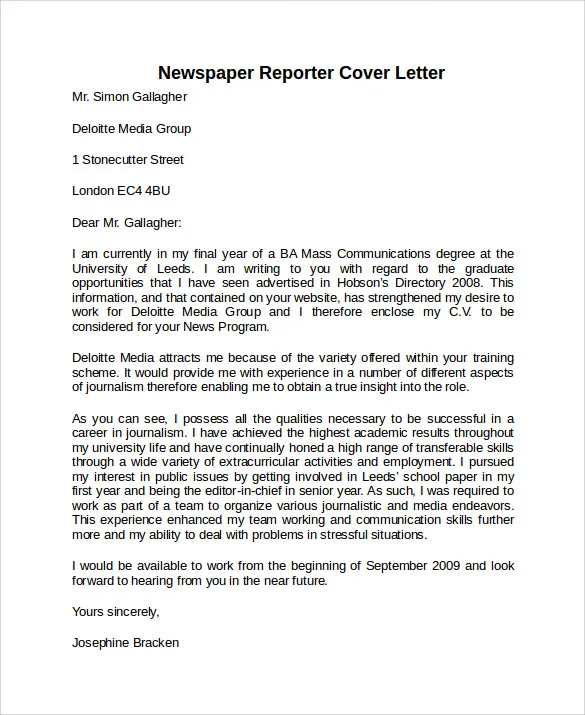
Once you understand the news organization, highlight the skills and experience that align with their needs. Carefully review the job description and identify the key requirements. Then, in your cover letter, provide specific examples of how your skills and experience have prepared you for the role. Use action verbs to describe your accomplishments and quantify your achievements whenever possible. For example, instead of saying “Wrote articles,” say “Wrote over 50 articles, resulting in a 20% increase in readership.”
Tip 2 Grabbing Attention with a Strong Opening
Your opening paragraph is your first and often only chance to make a lasting impression. It should immediately grab the reader’s attention and entice them to continue reading. Avoid generic greetings and clichés. Instead, use a strong, compelling opening that reflects your personality and highlights your passion for journalism. Consider using an anecdote, a bold statement, or a direct reference to the publication or role to capture their interest from the outset.
The Power of a Compelling First Paragraph
The first paragraph should succinctly answer the question, “Why this role and why me?” Make it clear why you are excited about the opportunity and what unique value you bring to the table. Show that you have a clear understanding of what the role entails and how your skills align with the requirements. Make your first paragraph memorable by showcasing your strong writing skills and demonstrating your enthusiasm for the position.
Avoiding Generic Introductions
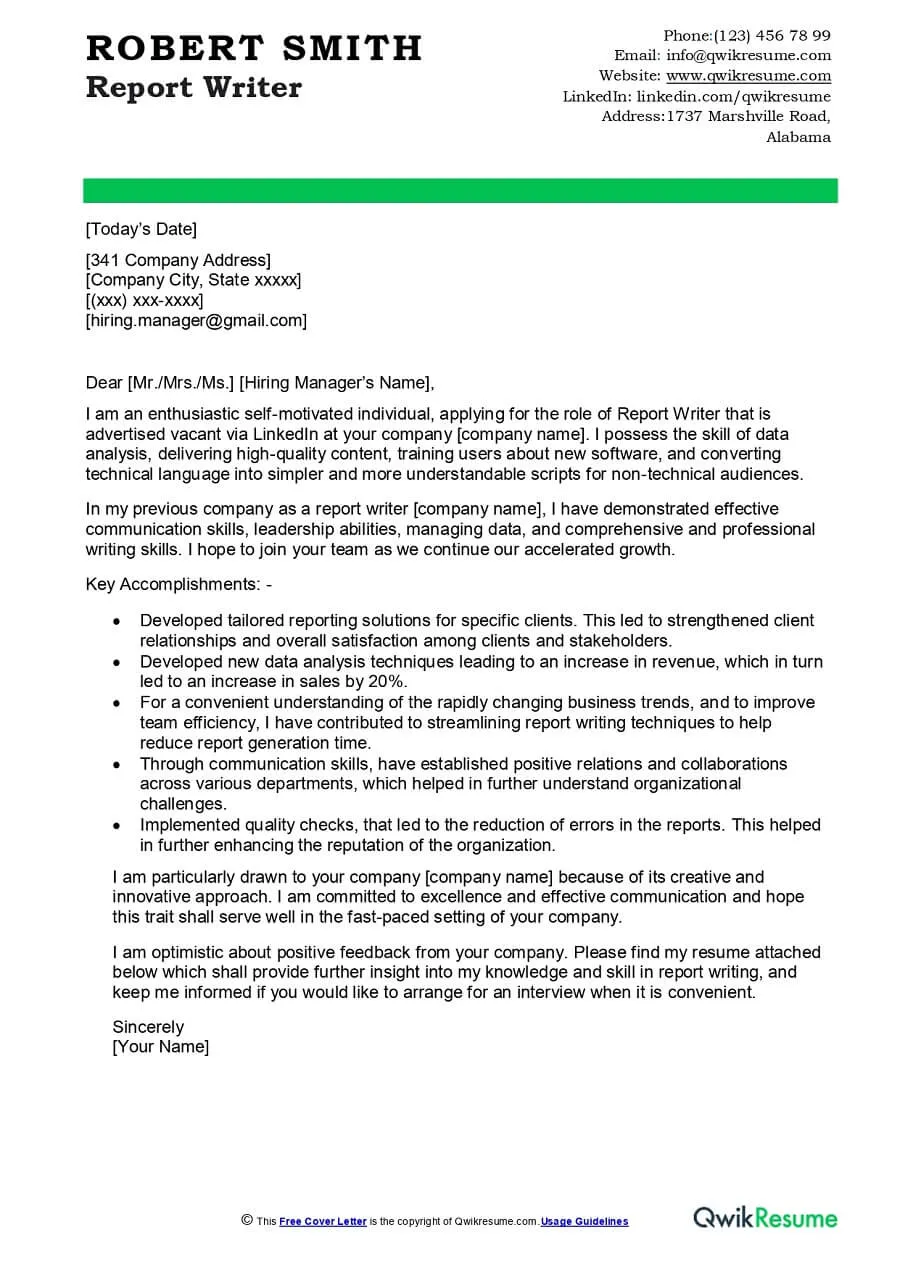
Steer clear of generic opening lines such as “I am writing to express my interest…” or “I am a highly motivated individual…” These phrases are overused and fail to capture the reader’s attention. Instead, start with a bold statement, a specific achievement, or a reference to something you admire about the news organization. Be original, be specific, and be memorable. The goal is to make the reader want to learn more about you.
Tip 3 Showcasing Your Writing Skills
As a reporter, your writing skills are paramount. Your cover letter is an opportunity to demonstrate your ability to write clearly, concisely, and engagingly. Use this space to showcase your writing style and demonstrate your ability to tell a story, even in a brief format. Ensure that your language is polished, your grammar is impeccable, and your overall tone is professional.
Demonstrating Clarity and Conciseness
Reporters must communicate complex information in a clear and concise manner. Your cover letter should reflect this skill. Use short, impactful sentences and paragraphs. Avoid jargon, clichés, and overly complex language. Ensure your message is easy to understand and that you get to the point quickly. A well-written cover letter should be a pleasure to read.
Providing Engaging Examples
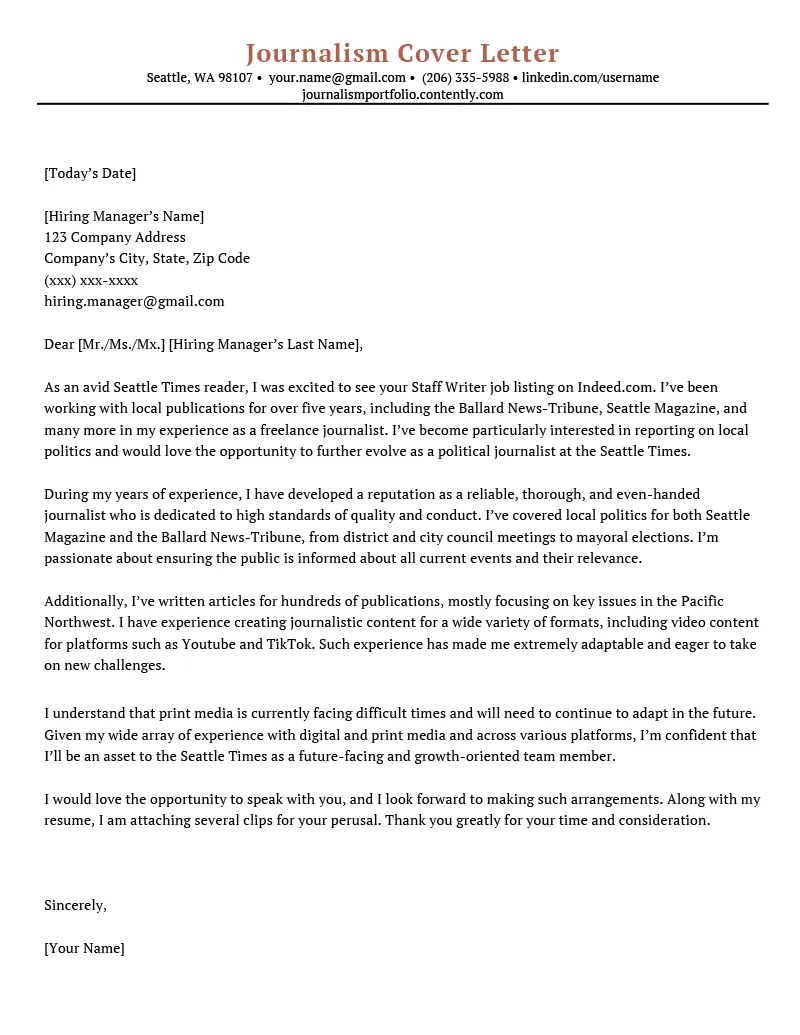
Support your claims with specific examples. Instead of simply stating that you have strong writing skills, provide examples of your published work or projects you’ve completed. If possible, include links to your articles or provide brief summaries of your best pieces. Illustrate your abilities with real-world examples that demonstrate your capacity to create compelling content that resonates with readers. Show, don’t just tell.
Tip 4 Highlighting Your Achievements and Impact
Don’t just list your responsibilities; focus on your achievements and the impact you’ve made in previous roles. Quantify your accomplishments whenever possible to demonstrate your value. Use data and statistics to showcase your successes and illustrate your potential to contribute to the news organization.
Quantifying Your Accomplishments
Numbers speak volumes. Whenever possible, quantify your achievements. For example, instead of saying “Increased social media engagement,” say “Increased social media engagement by 30% in six months.” Quantifying your accomplishments provides concrete evidence of your capabilities and demonstrates the positive impact you’ve had in previous roles. Use metrics to showcase your successes.
Focusing on Results
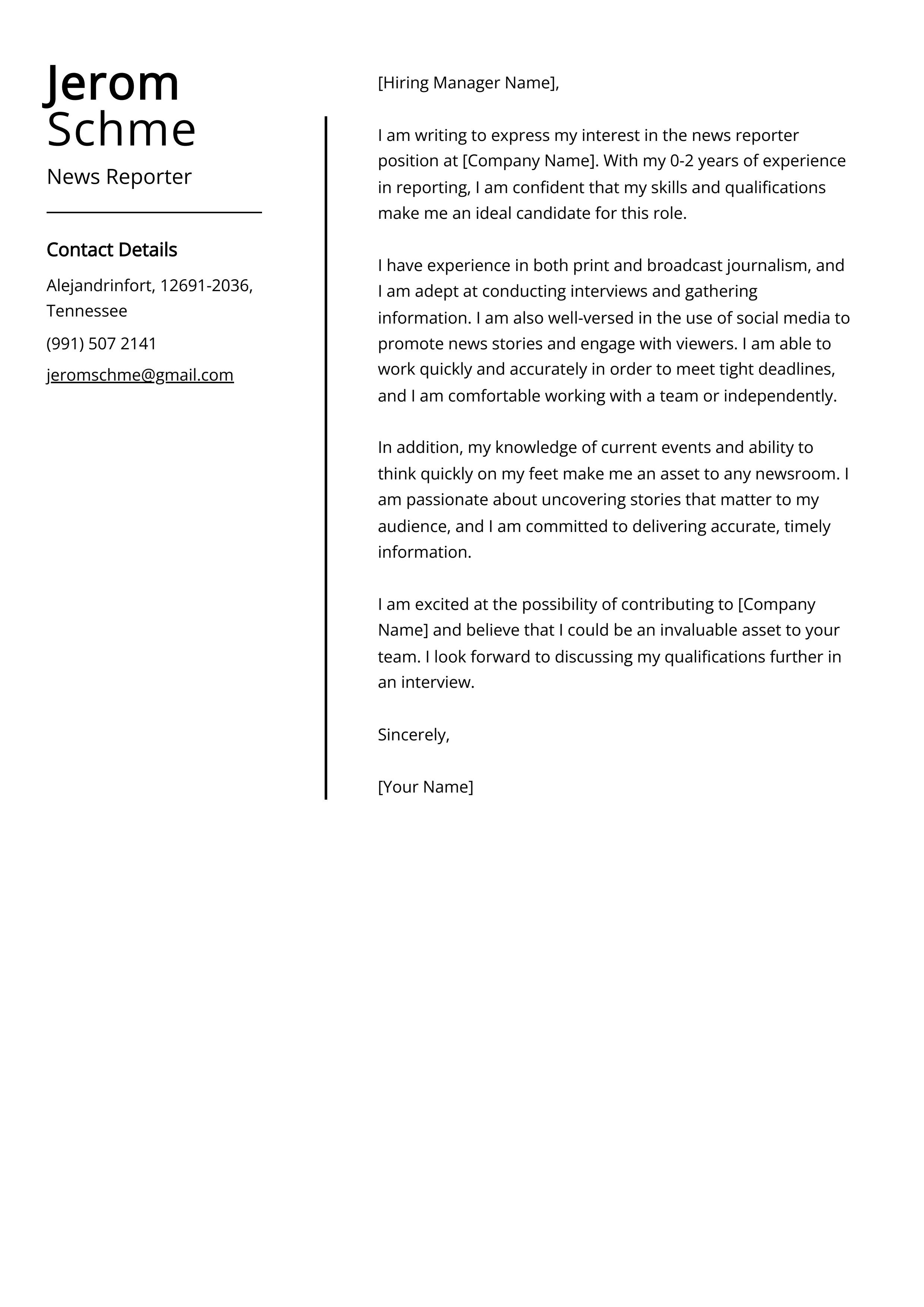
Highlight the results of your work. Did your articles lead to policy changes, increased readership, or heightened awareness of a specific issue? Focus on the positive outcomes of your contributions. The hiring manager wants to know what you can bring to the table and how you can help the organization achieve its goals. Demonstrate your ability to deliver results.
Tip 5 Demonstrating Your Knowledge of the Industry
Show that you are up-to-date with current events, trends, and the broader news landscape. Demonstrate your understanding of the industry by referencing relevant publications, journalists, and news organizations. This shows that you are not just looking for a job; you are passionate about the field of journalism and eager to contribute to the conversation.
Mentioning Current Events and Trends
Referencing current events and industry trends shows that you are engaged and informed. Mentioning specific stories or issues that interest you demonstrates your awareness of the issues that are shaping the world. This demonstrates that you understand the news cycle and can contribute relevant insights.
Referencing Publications and Journalists
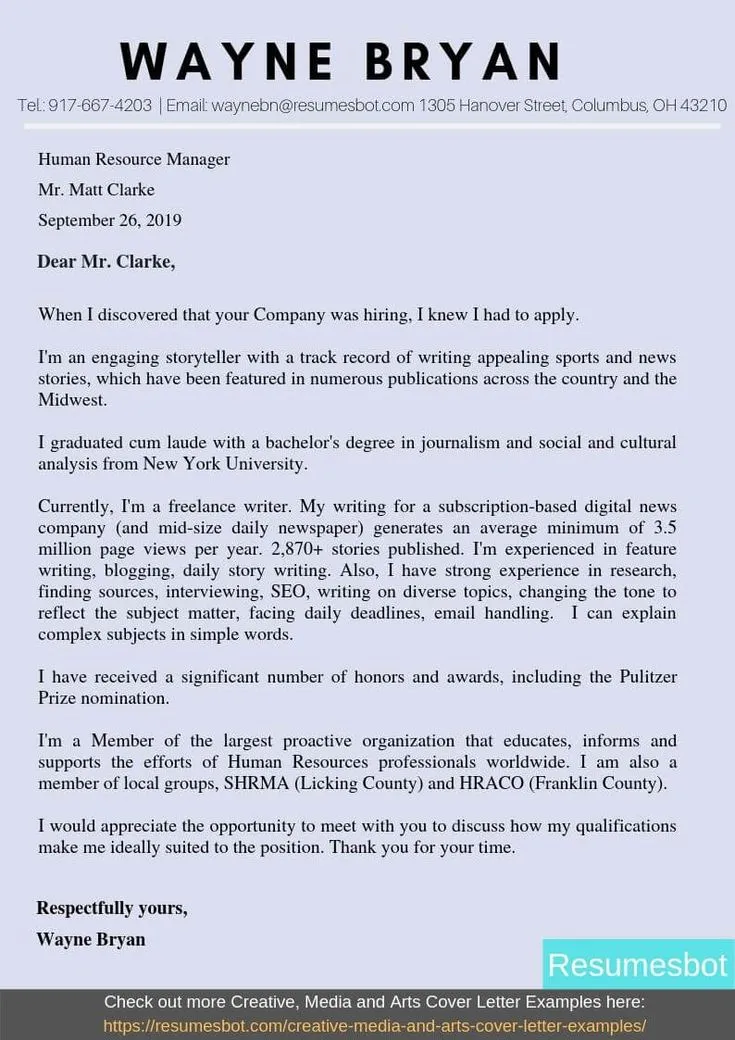
Show that you follow the work of influential journalists and publications. This demonstrates your deep interest in the field and your commitment to staying informed. Mentioning specific journalists whose work you admire shows you are familiar with the organization’s values and editorial standards.
Tip 6 Proofreading and Editing Meticulously
Errors in grammar, spelling, and punctuation can undermine your credibility and show a lack of attention to detail, which is essential for reporters. Always proofread your cover letter thoroughly. Read it aloud, have a friend or colleague review it, and use grammar and spell-check tools. A polished and error-free cover letter is a testament to your professionalism and writing skills.
Checking for Grammar and Spelling Errors
Make sure your cover letter is free of grammatical and spelling errors. Use a grammar checker, but don’t rely on it entirely. Proofread the letter multiple times, and consider having someone else review it. A single mistake can damage your chances of getting hired.
Ensuring a Professional Tone
Maintain a professional tone throughout your cover letter. Avoid slang, jargon, and overly casual language. Use clear and concise language. Remember, your cover letter represents you and your brand.
Tip 7 Closing with a Call to Action
End your cover letter with a strong call to action. Clearly state your interest in the position and express your enthusiasm. Provide your contact information and make it easy for the hiring manager to get in touch with you. Your closing should leave a lasting positive impression.
Expressing Enthusiasm and Interest
Express your genuine enthusiasm for the position and the news organization. Make it clear that you are excited about the opportunity to contribute to their team and that you are eager to learn more. Showing your enthusiasm leaves a positive impression.
Providing Contact Information
Make it easy for the hiring manager to contact you. Include your phone number and email address. Ensure that your contact information is accurate and up-to-date. You can also include a link to your online portfolio or professional website.
Cover Letter Final Thoughts
Writing a compelling cover letter is a crucial step in securing your dream job as a reporter. By following these seven tips, you can create a cover letter that showcases your skills, demonstrates your passion for journalism, and sets you apart from the competition. Remember to tailor your letter to each specific role, highlight your achievements, and proofread carefully. Good luck with your job search!
